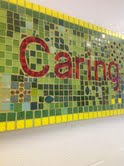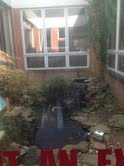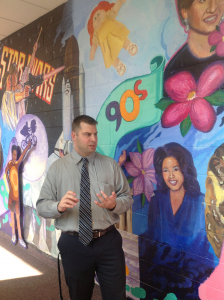It was the day after Thanksgiving 2012, and I was not able to fall asleep. As I flipped through the channels I stumbled upon Moneyball. I remember when the book came about about 10 years ago and I really wanted to read it. I also remember when the movie came out last year that I really wanted to see it. So, finally this was my chance! Kids were asleep and I had control of the TV. Nice!
The importance of systems thinking
Billy Beane, the General Manager of the Oakland Athletics with the help of his assistant General Manager, was looking to operate a team with limited financial resources. Their process, known as sabermetrics, was contrary to the conventional wisdom prevalent in baseball scouting for over 150 years. Scouts were looking at prospective players in terms of feel, disposition, and even looks. They asked questions of each other like, “How did the ball sound coming off his bat?” or “Does he have what it takes?” when referring to the players. In a sense, they were looking at the intangibles until Billy asked a familiar question that is often overlooked in organizations, “What is the problem?” I wondered to myself if Billy had gone through Six Sigma training.
Billy and his assistant GM used data to discover which statistics really mattered in Baseball. Instead of the flashy statistics that fans usually paid attention to such as home runs and stolen bases, they focused on batters getting on base, pitch counts, even where the ball should be hit. This paradigm shift caused an uproar to the scouts and baseball pundits who had been steeped in traditional baseball analysis. Throughout the rest of the film, Billy remains committed to this process-centered, sabermetrics. There are people within the organization who question him and even challenge him, but he remains process-centered. Eventually, the team found consensus and won. The data worked!
My school incorporates the utility of data analysis for everything. For instance, within the realm of Response to Intervention, we facilitate Universal Assessments for all students, and we use that data to determine whorequires basic skills instruction in reading fluency, reading comprehension, and/or math. Then, after a cycle of individually and research-based interventions, we analyze the data to determine if the intervention cycle was successful. We also analyze our Office Discipline Referrals (ODR’s). We compare our ODR’s against the previous school year, where the referrals are occurring, and which students are committing the referrals. This data advises us on how to provide appropriate remediation. We no longer have to “guess” if a student needs basic skills or if the discipline is “out of control.” We use the data to inform us and keep us process-centered.
This movie reaffirmed Six Principles I have learned about leadership and systems thinking through working in the Millville Public School District with the assistance of our PEG consultants:
- Organizations need to take time to understand their mission and vision – Why do we exist?
- Leaders need to assemble key stakeholders to undertake a problem solving matrix
- Processes need to be charted or flowed to identify how/why things happen
- Action plans that are developed must be time bounded, and an “owner” needs to be assigned, and held accountable
- Innovation is important, and there should be processes in place to allow people to push the limits, and take chances
- Periodic updates on the process ensures a better flow communication, and helps everyone stay connected
The story of Billy Beane, and the Oakland Athletics ends with the notion that Moneyball and sabermetrics changed baseball. They were able to prove that money doesn’t solve everything. I agree. All too often in education we are always looking to “buy” the latest program, or solution as opposed to determining the root cause of the problem and doing the difficult work to solve the problem. If we follow the methodological framework of revered systemic thinkers to identify problems at their core, we will find ourselves true competitors in a 21st century educational environment that we call schools!
Moneyball Trailer
Resources:










